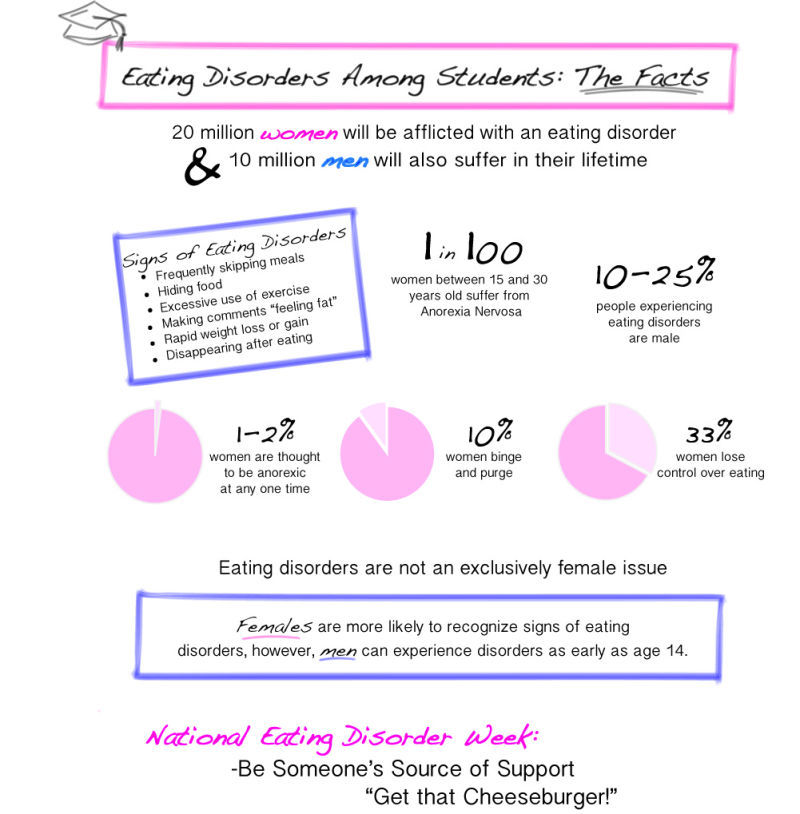Bahl: Don’t just give that girl a cheeseburger
By Melissa Kroksh/Iowa State Daily
Eating disorders afflict a large portion of both men and women, and columnist Morgan Bahl argues that the public needs to be more educated on the issue.
February 26, 2014
I think it’s safe to assume that we’ve all seen one of the sickly-thin-looking girls walking around campus, all skin and bones with almost nothing to them. With National Eating Disorder Awareness Week coming up, Feb. 23 to March 1, this is definitely a topic worth raising awareness. An estimated 20 million women will be afflicted with an eating disorder at some point in their lives and compared to all other mental illnesses, anorexia nervosa holds the highest mortality rate.
These disorders don’t just affect women though, with an estimated 10 million men that will suffer from an eating disorder during their lifetime. And more dangerously, the statistics say that men are less likely to seek help, due to the strength of gender roles. So how do we respond to these disheartening statistics? Continuing on safe assumption, I think most of us have either heard or offered the simple solution to “get that girl (or guy) a cheeseburger.” However, I believe that this is an ignorant perspective to a deeply complex problem and needs to be addressed.
As a culture, we often misunderstand the problem which the person just chooses not to eat and becomes incredibly thin. The issue is that we cannot force victims to eat when the problem is predominantly psychological and largely just expressed through physical appearance. If it were merely physical and a matter of increased calorie intake, we have all the nutritional research we need. We could easily set a buffet of food before them to quickly remedy the issue.
But to get to the core of the disorder is much deeper than increasing calorie intake and gaining body weight. It is a complicated and skewed relationship with food, desire for control and a flawed body image. It is difficult to treat because sufferers are often perfectionists who are highly critical of themselves and will commonly display the powerful and sheer will not to eat.
As previously mentioned, eating disorders are mental illnesses. Eating disorders are recognized in the DSM-5 manual of the American Psychiatric Association as mental disturbances related insecurity with food, body weight and emotions. In my opinion, our culture needs to be educated on the real issue at hand and take a more empathetic stance to support these people in their struggle.
We need to stop reducing the potentially fatal disorder to a matter of force-feeding someone fatty cheeseburgers and rather become conscientious of the real, deep-rooted struggle. It’s really about having our eyes open to the people around us and being sensitive to warning signs. Some signs include: frequently skipping meals, hiding food, disappearing after eating, following an intense workout routine without seeming to eat enough and making frequent comments about “gaining weight” or “feeling fat.”
Beyond identifying signs, a better perspective comes from being present. That comes from being sensitive and caring for the people suffering. It’s not about fixing the problem for them, because recovery largely comes from their commitment to getting better. Ask what you can do to help in an understanding, non-judgmental way and be a source of support. Listen well and offer to take them to get help.
With this better understanding and educated perspective, our culture can better support the victims of these disorders and show our empathy towards their condition.







